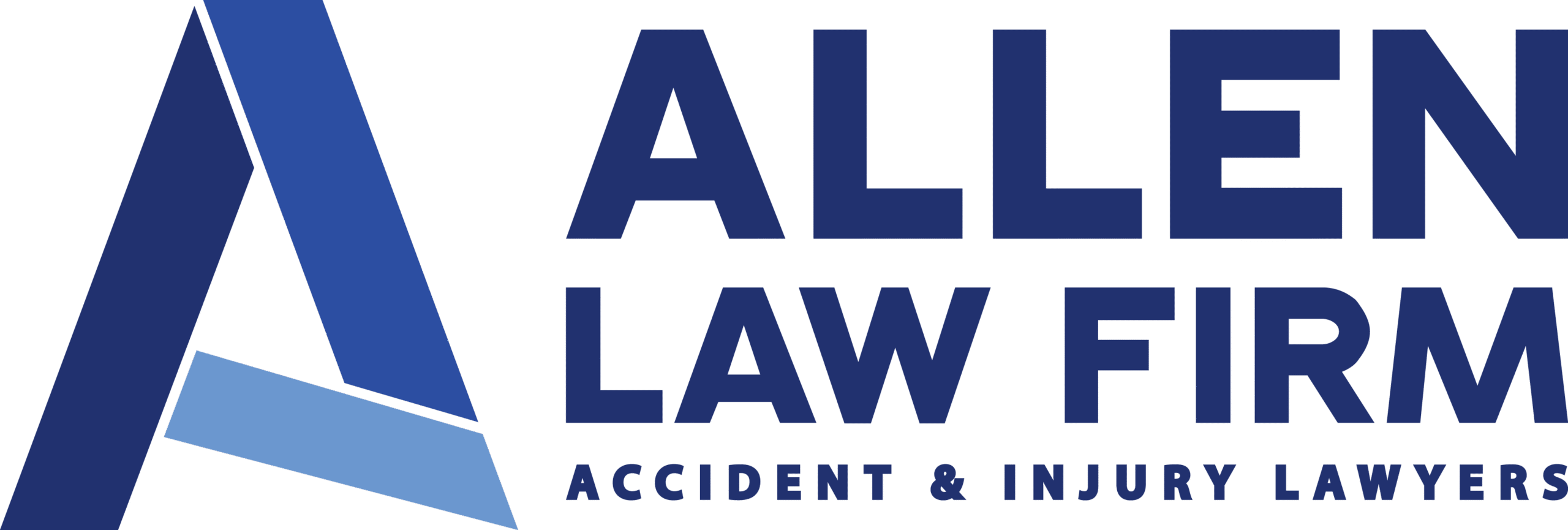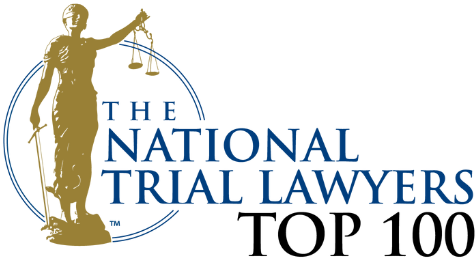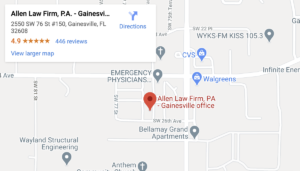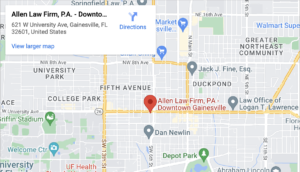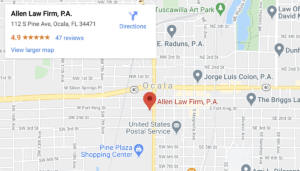
A traumatic brain injury (TBI) can change your life in an instant. The effects can be overwhelming, impacting every aspect of your daily routine, relationships, and future. If someone else’s negligence or misconduct has caused you or someone you love to suffer a brain injury, you may be entitled to compensation. The road to recovery is challenging, but a Florida brain injury lawyer can help you hold the responsible party accountable and pursue the financial support you need.
At Allen Law Accident & Injury Lawyers, we understand the difficulties faced by brain injury victims and their families. Contact us today for a free consultation with a Florida brain injury attorney at (877) 255-3652. We are here to provide the compassionate, experienced legal support you need to seek justice.
How Allen Law Accident & Injury Lawyers Can Help You After a Brain Injury In Florida

After a brain injury, you deserve a dedicated advocate to fight for your best interests. Navigating the legal process can be complex, especially when dealing with a difficult recovery. This is where a Florida brain injury attorney can make a difference. Since its founding in 2007, Allen Law Accident & Injury Lawyers has been helping clients across Florida seek justice and fair compensation for their injuries.
With over 100 years of combined experience in personal injury and insurance claims, our legal team has recovered hundreds of millions for our clients. We are proud members of the invitation-only Multi-Million Dollar Advocates Forum and National Trial Lawyers Top 100. Our attorneys have earned a Perfect 10.0 Avvo Rating and an AV Preeminent Martindale-Hubbell rating.
Here’s how our Florida personal injury lawyers can help you:
- Provide legal advice and guidance at every step of your case
- Conduct a thorough investigation of your accident to identify the at-fault parties
- Gather evidence to build a strong case for compensation
- Handle all communications with insurance companies and other parties
- Collaborate with experts to assess the full extent of your injuries and losses
- Negotiate with insurance companies to pursue a fair settlement
- Take your case to court if a fair settlement agreement is not reached
After a serious brain injury, your focus should be on your health and recovery, not fighting an insurance company. Our legal team is here to give you the support and legal advocacy you need. Contact our law firm today to schedule a free case evaluation with a Florida personal injury lawyer to discuss what we can do to help you.
Overview of Traumatic Brain Injuries
Traumatic brain injuries (TBIs) are the result of external force that causes damage to the brain. By comparison, acquired brain injuries (ABIs) result from internal factors like stroke or infection. Depending on the severity, TBIs can range from mild to severe, with potentially life-altering consequences.
According to the CDC, there are an estimated 2.5 million traumatic brain injuries every year in the United States.
What Are Common Types of Traumatic Brain Injuries?
There are many types of traumatic brain injuries, each with unique characteristics.
Here are the most common forms of TBI:
- Concussions. Also called mild traumatic brain injuries, concussions are often caused by a blow to the head or rapid acceleration and deceleration. About three out of every four brain injuries are concussions.
- Contusions or bruises. Brain contusions are caused by a hard blow to the skull.
- Coup and contrecoup injuries. This is damage that occurs below the site of impact (coup) or on the opposite side of the brain (contrecoup). These injuries can occur together as a coup-contrecoup brain injury.
- Intracranial hematoma. This is a collection of blood within the skull caused by a broken blood vessel. A hematoma can form within the brain (intracerebral), between the dura mater and brain (subdural), or between the skull and dura mater (epidural).
- Anoxic/hypoxic brain injuries. This type of brain damage occurs when the brain is deprived of oxygen for an extended period. Anoxic or hypoxic brain injuries are not TBIs, but they are common secondary brain injuries.
- Diffuse Axonal Injuries (DAIs). This serious type of injury results from the brain moving back and forth inside the skull. It causes widespread damage to nerve fibers. Up to 50% of brain injury-related hospitalization involves DAI.
A traumatic brain injury can also be classified as an open or closed head injury. An open or penetrating injury means a foreign object has penetrated the skull. Gunshot wounds are a common example.
What Are the Signs and Symptoms of a Brain Injury?
The signs and symptoms of a brain injury can vary depending on its severity and the affected region of the brain.
Common symptoms may include:
- Persistent headache
- Dizziness or loss of balance
- Nausea or vomiting
- Memory loss, confusion, or memory problems (“brain fog”)
- Sensitivity to light and sound
- Changes in mood or behavior
- Difficulty concentrating
- Blurred vision or ringing in the ears
A brain injury does not require a loss of consciousness or a blow to the head. When a victim does lose consciousness, it may last just seconds with a minor brain injury or hours with a moderate to severe TBI.
With a serious TBI, additional symptoms may include unequal pupils, seizures, and coma.
It’s crucial to seek medical attention if you or a loved one experiences any of these symptoms after an accident.
What Are the Potential Long-Term Consequences of a Brain Injury?
The long-term effects of a brain injury can be devastating and life-altering. Brain plasticity allows the brain to adjust how it processes and stores information after an injury to regain function. However, the brain can’t actually heal brain damage or grow new neurons in adulthood. Brain plasticity also decreases with age, which means the older you get, the more likely you are to suffer long-term effects of brain damage.
Victims may experience:
- Cognitive impairment, such as memory problems and difficulty concentrating
- Emotional and psychological issues, including depression, anxiety, and mood swings
- Impaired motor function, affecting coordination and movement
- Challenges with social interactions and maintaining relationships
- Persistent symptoms like headaches, dizziness, sensitivity to sound and light. This is called post-concussion syndrome.
- Chronic pain, which affects up to 60% of brain injury survivors
Growing research indicates a brain injury may have hidden consequences. TBI is one of the most established environmental risk factors for dementia. Chronic traumatic encephalopathy (CTE) is a fatal, degenerative disorder believed to be caused by repetitive brain injuries, even if they are minor or cause no symptoms.
These complications and long-term effects can impact a person’s ability to work, perform daily activities, and enjoy life. Serious brain injuries are one of the most common types of catastrophic injuries. Among people under 45, brain injuries are the leading cause of death and disability. An estimated 3.2 to 5.3 million Americans, or 2% of the U.S. population, are currently living with long-term disability from a TBI.
What Causes Most Brain Injuries in Florida?
Traumatic brain injuries can result from many types of accidents or even intentional harm. Violence, including assault and suicide, is a leading cause of fatal TBI. Below are the most common causes of accident-related brain injuries in Florida.
Motor Vehicle Accidents
According to the CDC, car accidents are the leading cause of TBIs among children and adults under 75 years old. They account for 17% of all fatal TBIs and 24% of nonfatal brain injuries requiring hospitalization. Nearly 35% of brain injuries in adolescents happen in traffic accidents.
Certain types of crashes are more likely to cause serious brain injuries. This includes motorcycle accidents, especially when riders are not wearing helmets, pedestrian accidents, and truck accidents.
Falls
Nearly half (48%) of TBI-related emergency department visits result from falls, particularly among young children and older adults. Slip and fall accidents alone cause 81% of brain injuries in seniors.
About 30% of TBI-related deaths are attributed to falls, and two-thirds of fatalities are in seniors 75 and older.
Sports and Recreation
Activities like football, soccer, and cycling can lead to TBIs, especially concussions. It’s estimated that 5-10% of all contact sport athletes experience a concussion each season. Sports are also the cause of 21% of traumatic brain injuries in children.
Workplace Accidents
An estimated 24% of TBIs are work-related. Certain industries and occupations are at an increased risk of a brain injury from a workplace accident:
- Construction
- Warehouse workers
- Transportation workers
- Professional athletes
- Loggers
- Agricultural workers
- First responders
Falls are one of the “fatal four” in the construction industry and are responsible for 37% of construction deaths. In addition to falls, work-related TBIs may be caused by falling objects, traffic collisions, and heavy machinery.
What Is My Florida Brain Injury Case Worth?
Determining the value of a brain injury case involves evaluating several factors.
A Florida brain injury lawyer will consider the following:
- Severity of injuries. The more severe the injury, the higher the potential compensation.
- Impact on daily life. The extent to which the injury affects your ability to work and perform daily activities.
- Insurance coverage. Available insurance policies of the parties who share liability.
- Comparative fault. Whether you share any responsibility for the accident.
- Circumstances of the accident. How the injury occurred and the behavior of the at-fault party.
- Ability to return to work. Whether the injury has affected your earning capacity.
Every case is unique and requires careful assessment of these factors and more. The best way to understand what you may recover is to consult with a personal injury lawyer to discuss your case.
What Types of Damages Are Available to Brain Injury Victims in Florida?
In Florida, brain injury victims may seek compensation from the party at fault for their injury. In a successful claim, you are entitled to compensatory damages, which are divided into two categories. Compensatory damages are intended to compensate you for the full extent of your losses.
Economic damages refer to financial losses directly related to the injury.
Common examples include:
- Current and future medical expenses
- Lost wages
- Diminished earning potential
- Rehabilitation and therapy costs
- Out-of-pocket expenses related to your injury
- Property damage
Non-economic damages compensate you for the intangible losses you suffered. This includes pain and suffering, emotional distress, loss of enjoyment of life, and disfigurement.
Punitive damages may be awarded by a court with clear evidence of the defendant’s gross negligence or intentional wrongdoing. These damages are uncommon.
Can I Still Recover Compensation If I Am Partially At Fault for My Accident in Florida?
Florida follows a modified comparative negligence rule with a 51% bar. This means you can still recover compensation if you are partially at fault, as long as you are not more than 50% responsible for the accident. However, your compensation will be reduced by your percentage of fault.
The insurance company will attempt to shift as much blame as possible to reduce or avoid liability. This makes it crucial to seek legal representation if you are being blamed for your accident.
How Long Do I Have to File a Brain Injury Lawsuit in Florida?
In Florida, the statute of limitations is two years from the date of the injury for personal injury cases based on negligence. If your brain injury involves intentional tort, such as abuse or tort assault, you have four years to file a lawsuit.
It is essential to act quickly, as missing this deadline may result in losing your right to seek compensation.
Contact Our Florida Brain Injury Lawyers for a Free Consultation
If you or a loved one has suffered a brain injury in Florida, you deserve compassionate and knowledgeable legal support. Allen Law Accident & Injury Lawyers is here to help you pursue the compensation you deserve and hold the responsible party accountable.
Contact our law office today for a free consultation with a Florida brain injury lawyer to discuss your case and explore your legal options.
